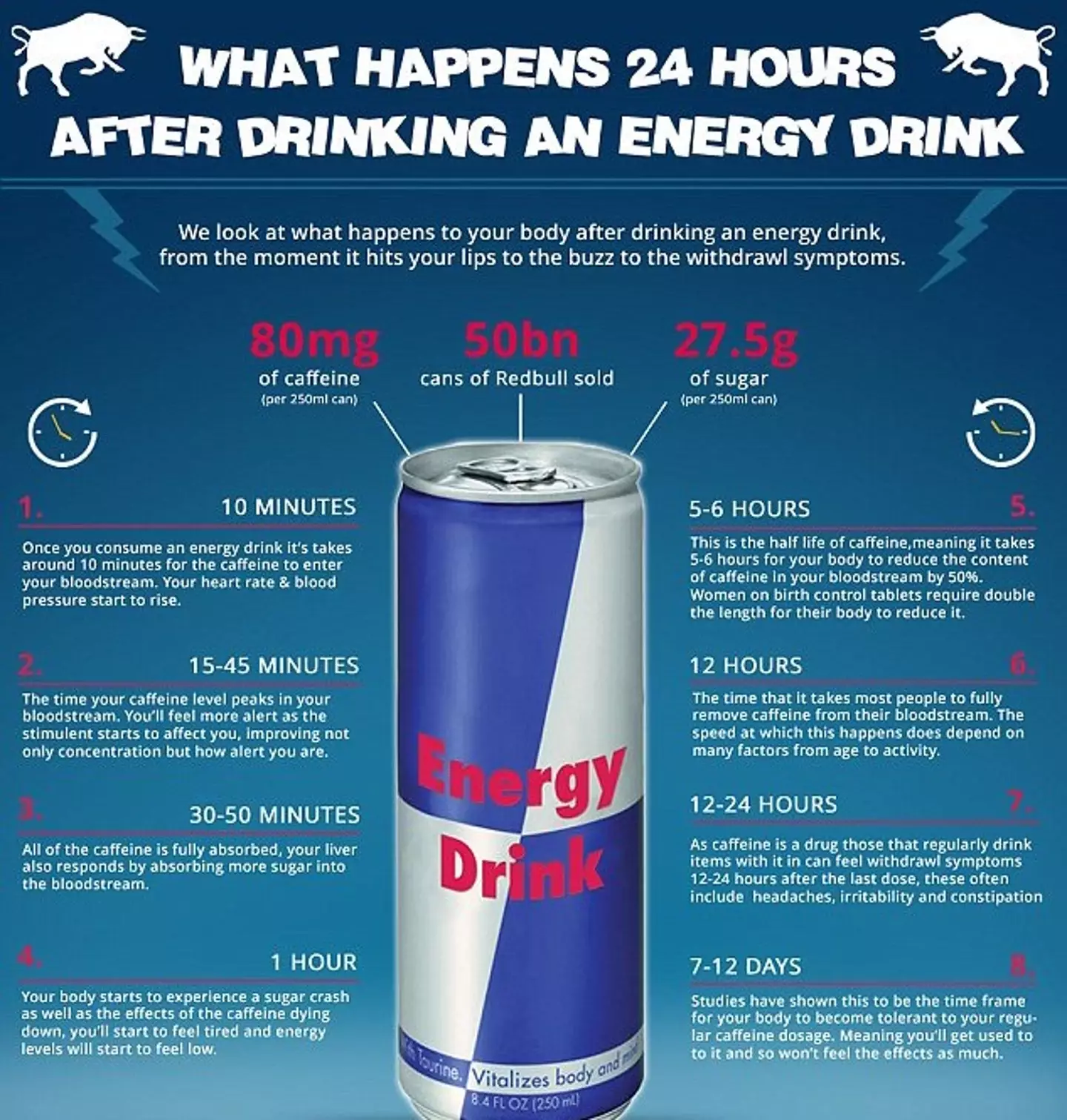
If a long day at work has you reaching for an energy drink in a bid to boost your spirits, you may want to think again. A minute-by-minute guide has shown what just one can does to your body – and the results are shocking.
The infographic, from Personalise.co.uk, explains how one 250mg can of one can of Red Bull contains 80mg of caffeine – double the amount in a typical cup of coffee – as well as 27.5g of sugar, which is almost triple the amount in a can of lemonade.
In the first 10 minutes of swigging your energy elixir of choice, the caffeine will begin to enter your bloodstream, causing your heart rate and blood pressure to rise.

Advert
Within 15-45 minutes, your caffeine levels peak in the bloodstream. This stimulant peak will cause you to feel more alert and will improve concentration levels.
Within 30-50 minutes, your body would have fully absorbed all the caffeine, while your liver also absorbs more sugar into the bloodstream.
Within an hour, you might start to feel tired again as you experience a sugar crash. Energy levels will reduce here.
Flash forward five to six hours since drinking an energy drink, and your body would have only just reduced half the caffeine content in your bloodstream.

Advert
Meanwhile, for women on hormonal contraception, they’ll require 10-12 hours to reduce half of the caffeine content in their bodies.
Moving onto 12 hours after drinking a can, most people’s bodies would have removed all the caffeine from their bloodstream. However, the speed at which you metabolise depends on many different factors including age, activity, and birth control, as previously discussed.
Between 12 to 24 hours post-energy drink, many caffeine drinkers can experience withdrawal symptoms, including irritability, headaches and constipation.

Perhaps most shockingly, after seven to 12 days, studies have proved this to be the time in which your body can become tolerant to caffeine usage. This means that your body will get used to these levels of the stimulant and you therefore won’t feel the energy-raising effects as much next time you drink it.
Advert
A representative of Red Bull told LADbible: "Energy drinks were created more than 25 years ago. They are available in more than 165 countries including every country of the European Union because health authorities across the world have concluded that the ingredients contained in energy drinks are safe to consume.
"Common ingredients in energy drinks are caffeine, taurine and vitamins. Energy drinks contain about the same amount of caffeine as a cup of home-brewed filter coffee. In 2009, the European Food Safety Authority (EFSA) published their scientific opinion on ingredients of energy drinks and concluded that these are of no concern. On May 27, 2015, EFSA additionally established safe intake levels for caffeine from all dietary sources, including energy drinks (scientific opinion on the safety of caffeine). Energy drinks are classified as normal foodstuff and marketed accordingly."
Elsewhere, other studies have found a link between energy drinks and prostate, breast and colorectal kidney problems.
Studies have also shown a link between frequent energy drink consumption and obesity and mental health issues including increased risk of depression and having problems with concentration in the long term.
Topics: News, Food And Drink, Health